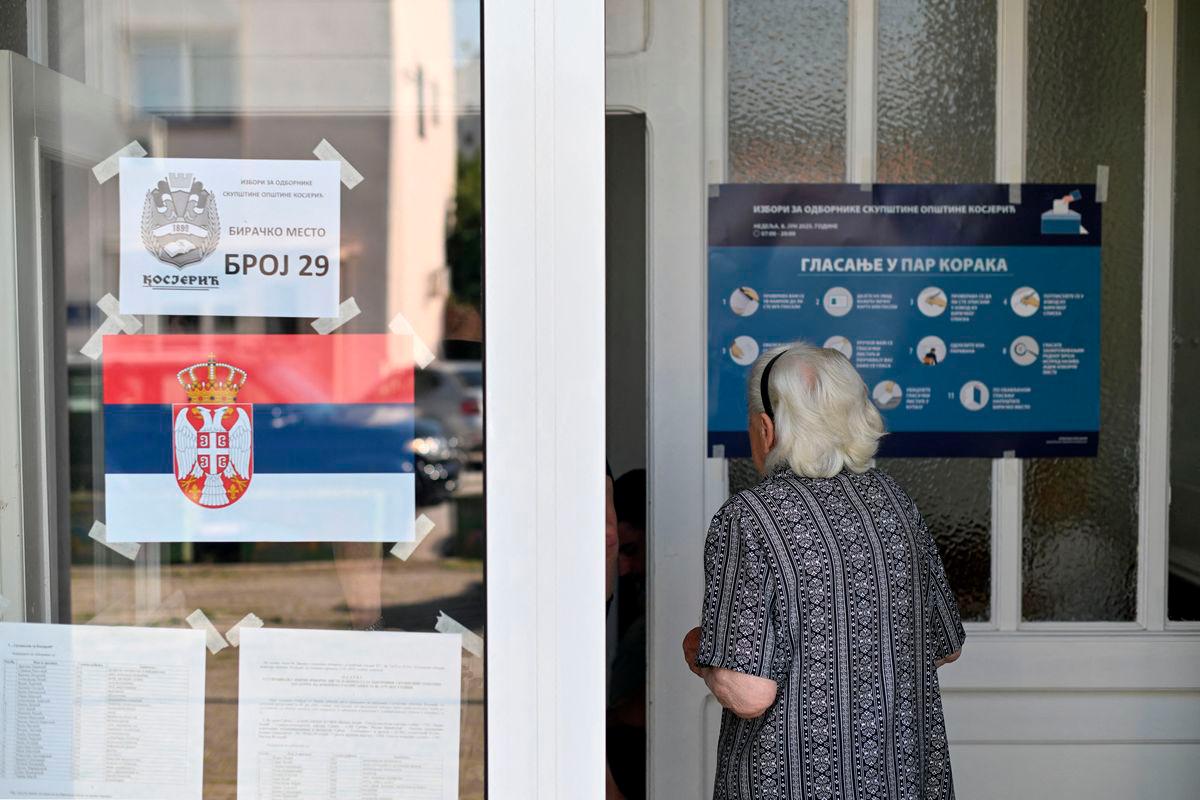KOSJERIC: Residents of a small Serbian town turned out in large numbers on Sunday for a municipal election that posed a high-stakes test for the national government after months of student-led protests.
The vote in Kosjeric was the first since the protests broke out against the governing nationalist party in November, after 16 people died when the roof of a newly renovated train station collapsed in the city of Novi Sad.
The accident, widely blamed on deep-rooted corruption, sparked rallies that have heaped pressure on populist President Aleksandar Vucic.
The governing Serbian Progressive Party (SNS) was challenged by the united independent candidates' list United for Kosjeric, supported by student protest leaders, in the town of 10,000 people.
Vucic, citing what he said was data from local electoral authorities, said his SNS had won the election with more than 50 percent of votes, but his opponents also claimed victory.
The town's electoral commission had yet to publish official results late on Sunday.
Vucic told a news conference in Belgrade: “We won because the people chose the state; because the people said: ‘You will not destroy Serbia!’”
His opponents earlier rallied in Kosjeric, claiming victory themselves after the close of voting.
“Victory has begun. Let all Serbia celebrate,“ lead candidate Slavic Pantovic told a crowd.
She later defied Vucic’s claim to have won, saying: “We have no doubt of our victory and no one can take it away from us.”
Election day clashes
Vucic alleges the student-led protests are being engineered by foreign powers and has called them an “attempted coup”, while hinting that national elections “might be held soon”.
In Kosjeric, police intervened to quell clashes between supporters of the rival sides on Sunday.
As of 6:00 pm (1600 GMT), more than 76 percent of those registered had voted, the local elections chief Sandra Filipovic told journalists.
In his later appearance, Vucic quoted the overall turnout as 84 percent.
He said his party also won another local election in Zajecar, a more conventional race with various parties competing in an SNS-governed town.
The independent slate featured new faces to politics as well as opposition members who dropped party labels, a model planned for eventual national elections.
The student-led protests have already forced a prime minister to resign, leading to the collapse of the previous government.
In April, parliament elected a new cabinet led by Prime Minister Djuro Macut, a doctor and political newcomer.









